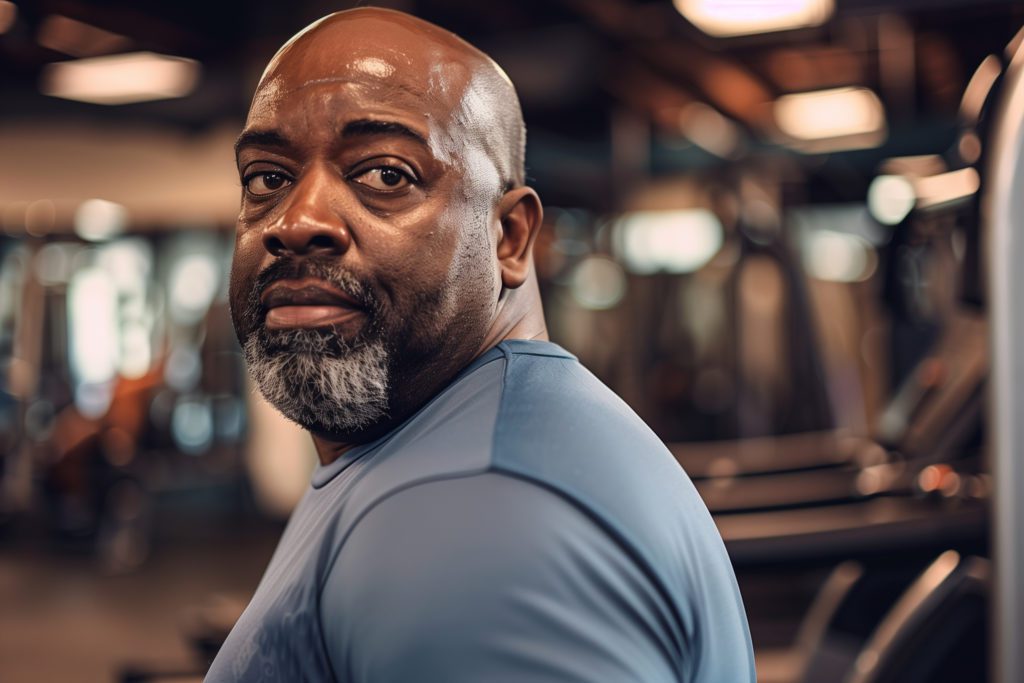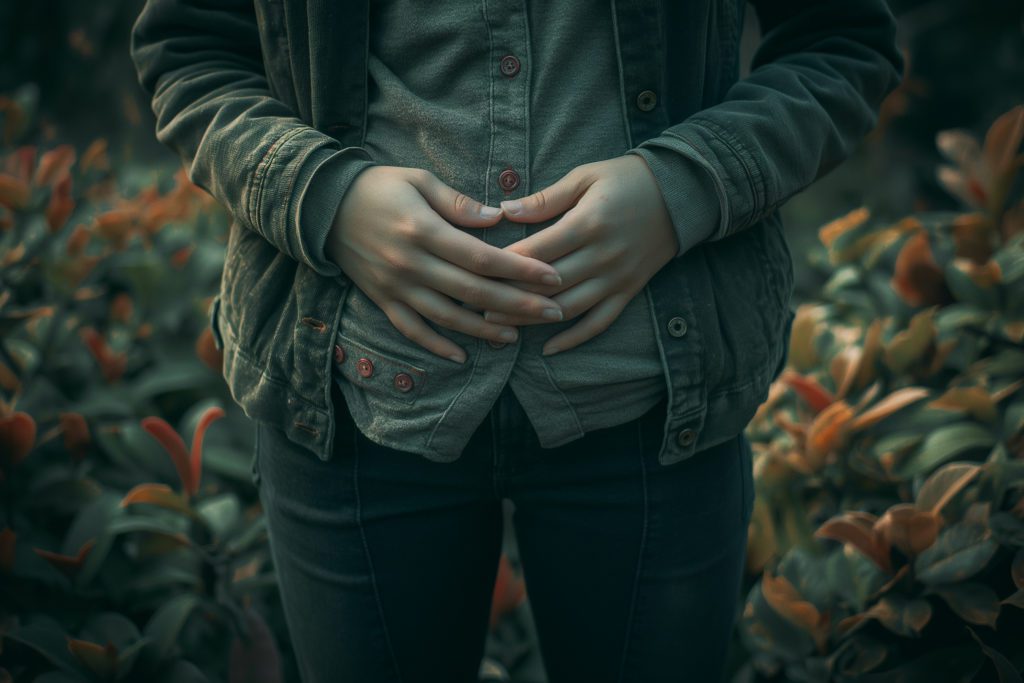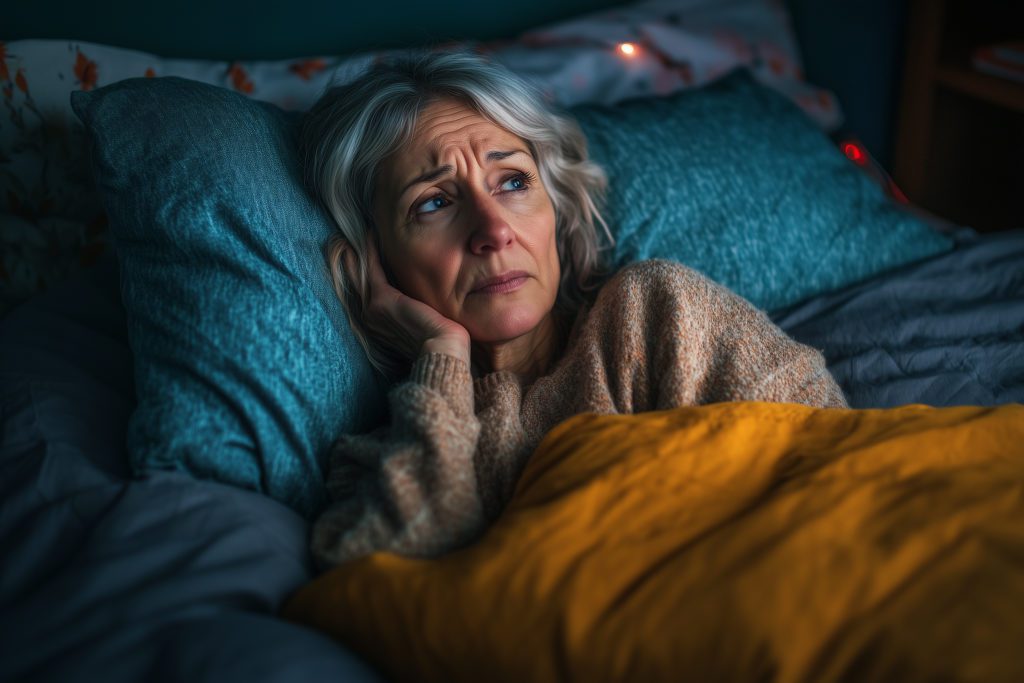
Managing IBS for Better Sleep: Lifestyle Changes and Treatments
Irritable bowel syndrome can wreak havoc on your sleep. Get better sleep by cutting caffeine and alcohol and avoiding greasy, fatty foods before bed.

As many as 15 percent of people in the United States live with irritable bowel syndrome or IBS, a chronic gastrointestinal disorder. Living with IBS can be tough. This condition causes debilitating symptoms like bloating, stomach pain and cramping, constipation, gas, and diarrhea. It affects women more than men.
IBS can also take its toll on your sleep. While sleep problems aren’t part of the official diagnostic criteria for irritable bowel syndrome, more than half of all people with IBS suffer from sleep problems, including:
- Having less restorative sleep
- Waking up frequently during the night
- Shorter sleep duration
- Insomnia
- Excessive daytime sleepiness
Aside from gastrointestinal issues, sleep problems are among the most common complaints of people with IBS.
Let’s take a more detailed look at the connection between IBS and sleep, along with some tips to help you sleep better with IBS.
Sleep and IBS
Multiple studies have documented a link between poor sleep and IBS. One study found that those with IBS were more likely to have sleep fragmentation, more daytime sleepiness, and more impairment to their quality of life compared to controls. They also got 70 percent less deep sleep overall.
Another study, published in the journal PLOS ONE, looked at how often sleep issues were present in IBS. It was found that people with IBS were 3 times more likely to have insomnia compared to those who didn’t have IBS.
The occurrence of sleep disorders, especially sleep apnea, is quite high among those with IBS. In one meta-analysis, the prevalence of sleep disorders in participants with IBS was 37 percent.
How Does Poor Sleep Affect IBS?
Just as irritable bowel symptoms can lead to insomnia and other sleep issues, poor sleep can also affect IBS symptoms. Sleep deprivation increases inflammation in your body. Inflammation raises the risk of IBS symptoms.
Studies have found that morning IBS symptoms are related to the quality of sleep the night before. The worse your sleep, the worse your IBS symptoms. So, if you didn’t get a good night’s rest, you can expect more IBS symptoms the next day.
Signs and Symptoms of IBS That May Affect Sleep
Many of the symptoms of IBS can impact sleep.
- Increased urge to urinate - This symptom is especially common at nighttime.
- Diarrhea - IBS can cause you to wake up in the middle of the night with diarrhea, which disrupts your sleep.
- Acid reflux - Acid reflux usually goes hand-in-hand with IBS. Acid reflux can worsen at night and keep you awake.
- Gas/Flatulence - Gas is a common symptom of IBS. Experiencing excessive gas when you are trying to sleep can definitely keep you from getting the rest you need.
- Depression - Although depression isn’t a symptom of IBS per se, many people with IBS experience depression. In one study, 27 percent of people with IBS had depression. This mental health disorder can affect sleep.
- Chronic Pain - Chronic pain is common with IBS. Pain can make it hard to fall asleep. It can also wake you up out of a deep sleep. Conversely, sleep deprivation can amplify chronic pain.
- Anxiety - Like depression, anxiety is not a symptom of IBS. However, anxiety affects up to 38 percent of people with IBS and is a sign of the illness. Anxiety can affect sleep, as well.
How to Get A Better Night’s Sleep With IBS
Not getting enough sleep can throw off your entire day, and negatively impact your overall health. Fortunately, IBS can usually be managed with some simple lifestyle changes.
- Cut down on alcohol and caffeine - Researchers have found that caffeine and alcohol can worsen IBS symptoms. Caffeine can trigger diarrhea because it’s a stimulant. When it comes to caffeine, it’s not just coffee you need to think about. Caffeine is also found in soda, energy drinks, dark chocolate, and some teas. It’s also found in some over-the-counter painkillers.
- Try bedtime yoga - Yoga may be beneficial for those with IBS. A 2022 study found that 2 months of online yoga and meditation classes improved the quality of life and reduced IBS symptoms among participants. Plus, bedtime yoga can help relieve muscle tension and reduce stress, which can help you sleep better.
- Quit smoking - Studies have found that cigarette smoking can make the symptoms of IBS worse. A large study published in 2021 examined the effects of smoking among participants with IBS in Sweden. Participants who smoked a pack or more cigarettes each day experienced more symptoms of IBS, such as excessive gas, diarrhea, and urinary urgency. These symptoms can all interfere with sleep.
- Avoid fatty, greasy foods at dinnertime - These foods can make IBS symptoms worse. Eating them at dinnertime can cause you to wake up in the middle of the night with symptoms.
- Check your medications - If you have irritable bowel syndrome, it’s a good idea to check any medication before you take it to see whether diarrhea or another IBS symptom is one of the common side effects. One of the most common culprits is nonsteroidal anti-inflammatory drugs (NSAIDs), which can cause diarrhea and abdominal pain. The last thing you want to do is take some ibuprofen before bed only to be kept awake with painful cramps and diarrhea.
- Track your symptoms - Everyone’s experience with IBS is so different. Therefore, it’s useful to keep track of your symptoms. That way, you can identify possible triggers that might be worsening your symptoms and keeping you awake at night. Also, keep track of how many hours you are sleeping and whether it’s interrupted. That way, you can see if a lack of sleep is a trigger. You can use Pillow to help you track sleep.
Getting a Better Handle On IBS for Better Sleep
If you have IBS, sleep disturbances can make the disorder even harder to live with. Talk to your doctor about your sleep issues to determine whether further assessment is necessary. Practice good sleep hygiene and follow the above tips to better manage IBS and sleep better.

Written by
Emily Mendez
Emily Mendez is a former therapist and mental health author. She is one of the leading voices in mental health. Emily's writing has appeared in eCounseling, SonderMind, and more. Emily is frequently interviewed by Healthline, Fatherly, INSIDER, Family Circle, and other national media for her advice and expert opinion on the latest mental health topics.
Download Pillow
Get help
Press & News
Legal
Connect
X (Twitter)
Company
Copyright © Neybox Digital Ltd.



